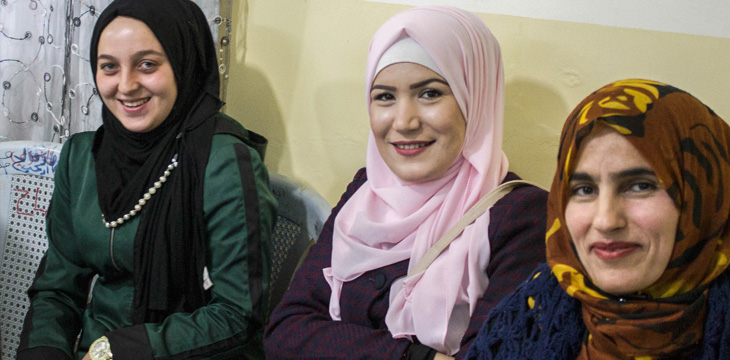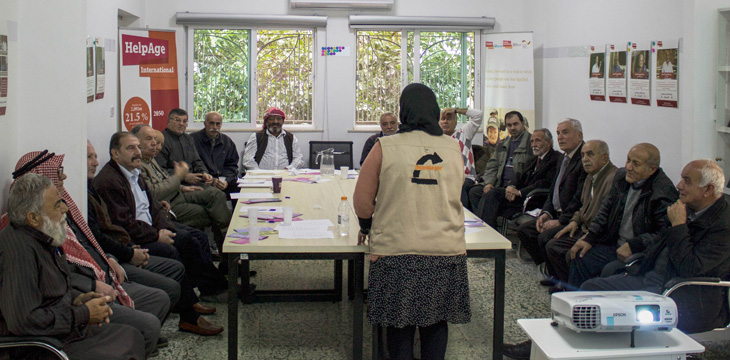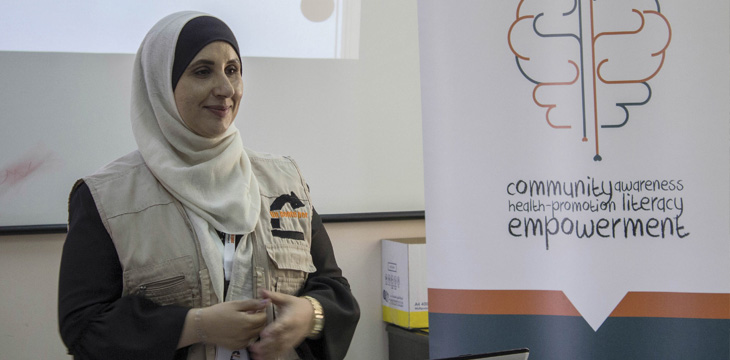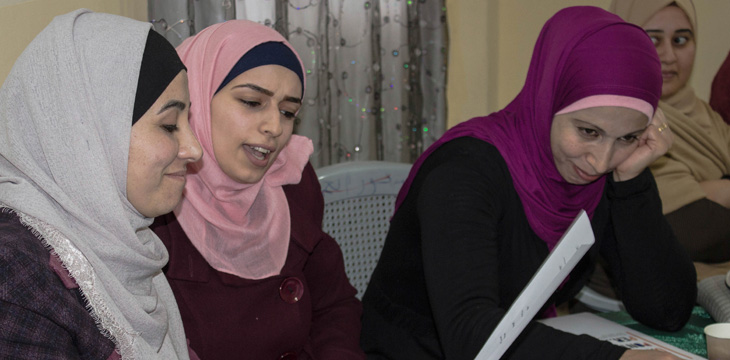Jordan. Working for mental health and against stigma
“I know now that it is normal to have highs and lows. Even in moments like this when everything seems very dark, and it is impossible to find a light. It was surprising to discover that other people are going through the same thing. It is comforting to talk about it with other people”.

The war in Syria and the consequences of the flow of millions of people into neighbouring countries is now in its eighth year.
Eight years of life for people who, overnight, lost everything, finding themselves living in countries who now have to deal with a sometimes strained situation, often living in communities already struggling with social and economic challenges of their own.
This is the situation in Jordan, where – according to UNHCR estimates – the Syrian population now numbers almost 700,000. Amongst the many consequences of war, of displacement, of exposure to extreme levels of violence, are the invisible scars: the wounds that fester in hearts and minds, triggering psychological problems, depression and anxiety.
Fear, worry, desperation: more than 54% of refugees in Syria have been dealing with these feelings for years. Including countless children.
And even though psychological blocks and challenges faced by Syrian refugees are unique, and directly related to trauma of war and violence witnessed, the Jordanian community which is hosting them is also struggling with widespread poverty, unemployment and limited access to adequate healthcare and education.
Estimates suggest that in Jordan there are only 2 psychiatrists for every 100,000 people. For this reason the provision of real support for people in need is a real challenge, complicated by the social stigma which surrounds people with psychological problems.

In this context we realised that the people who work with these communities and their inherent challenges on a daily basis, would need to learn how to recognise any hidden signs of distress, anxiety or depression in men, women and children.
How could we help them? The answer to this question was our ’Strengthening the mental health system, improve access and services for Syrian refugees and vulnerable Jordanian population’ with support from the Italian Cooperation for Development (AICS) and the World Health Organisation (WHO), with implementation and guidance from a network of local organisations who have been active in their own country for years. Our aim was to raise awareness on issues relating to mental health, with a special focus on young men and women, both from the hosting Jordanian population and the Syrians themselves.
We hoped to be able to increase understanding of issues relating to mental health and break down taboos, by learning together with people from both communities about how to identify problems and distress, putting them in touch with specialised doctors and informing them of possible treatment, but above all to overcome social stigma, discrimination and marginalisation at all levels of society.

“Here, if somebody needs psychological help, people assume they are mad” says Mohammad, one of the participants inour group meetings. “You have to encourage discussion about mental health between young people and the older generations, because depression and anxiety can affect anyone and should not be considered as taboo subjects”.
Amman, Zarqa, Irbid, Karak – we are working in the areas which host the most Syrian refugees in the country by identifying and working with the most vulnerable and most marginalised communities. In just one year, we have assisted more than 1,500 people.
Film screenings, radio programmes, awareness raising campaigns, meetings with youth groups and teacher training: all these initiatives were organised and brought together, bringing excellent results.
Rights, solutions and possible treatments were all discussed. But our ultimate goal was to make the project self-perpetuating in the years to come: to this end, we organised ‘peer-to-peer’ training sessions with young men and women from Syria and Jordan, so they could become reference points for each community and continue to fight prejudice and stigmatisation of people with mental health problems. This will ensure that symptoms of distress are recognised.
“It is important for me to help friends who might be dealing with depression” – one of the trained girls told us. “Before this I didn’t know what to do, now I know that sometimes people just need someone to talk to, or someone who can tell them how to get professional help”.

“Ensuring that all my students get the same support has always been my priority as a teacher” – one of the project trainers told us. “It is not always easy here in Kufr Assad (Irbid), as most of the children live in difficult situations due to displacement and poverty. Since being trained, I am better at coping with this and encouraging inclusive schooling, especially for those in desperate need”.
This project was only possible because of an on-going collaboration with the local organisations who do the groundwork work with the community, every day. These include Our Step, who have been working with us for years; the Jordan Hashemite Fund for Development (JUHOD), UNHCR, HelpAge and the radio station Farah al-Nas, which broadcasts our information programming. Together, these groups guarantee the sustainability of the project that we launched, and that our local staff will continue to work on follow-up meetings.
